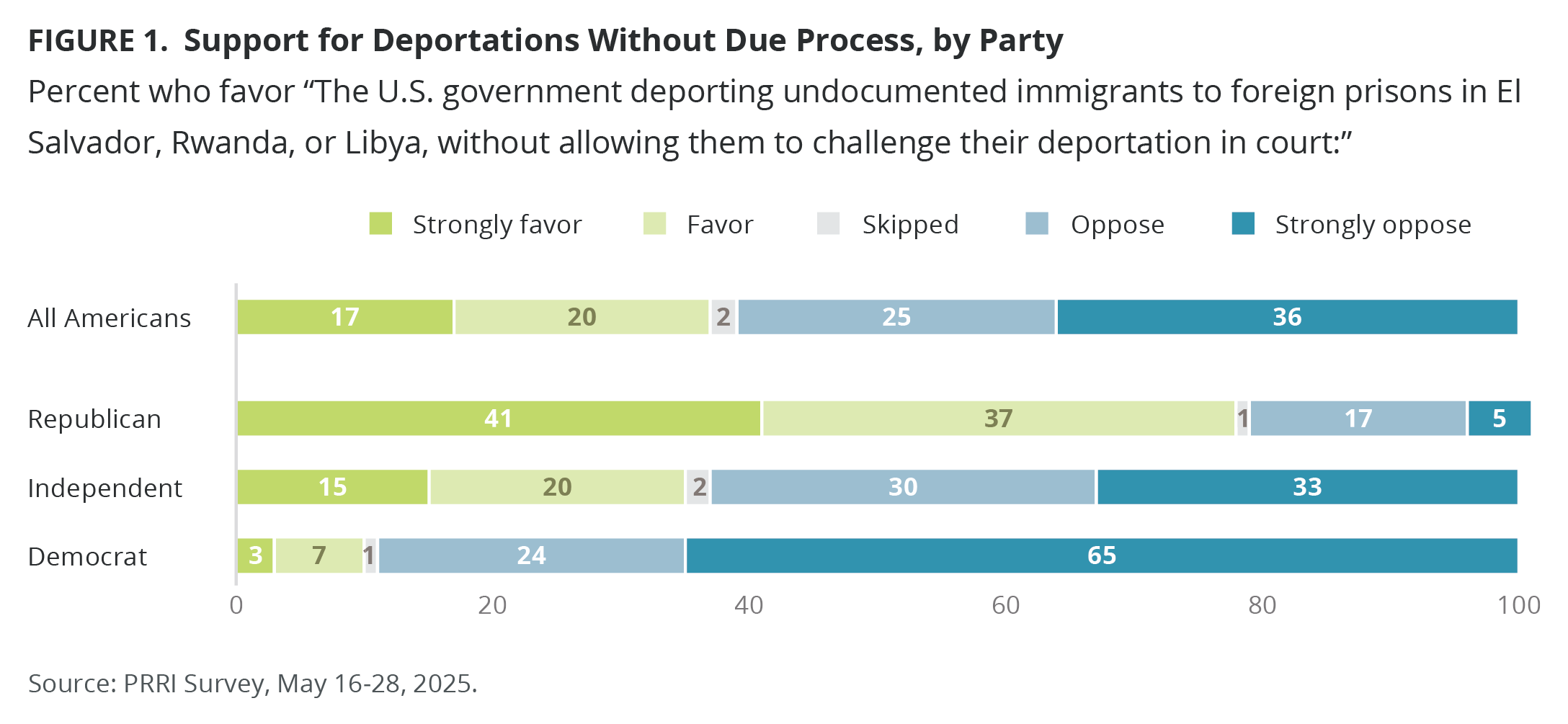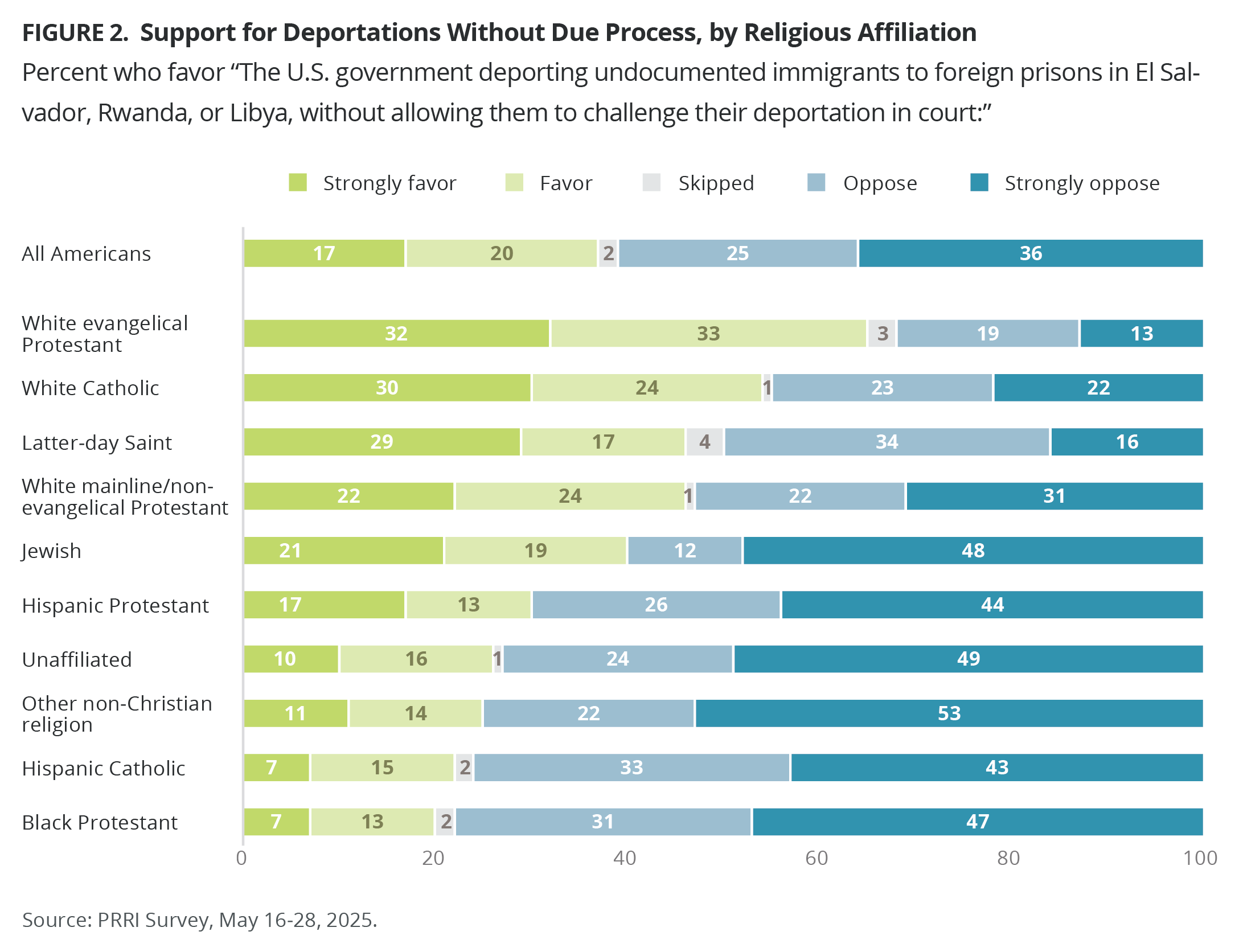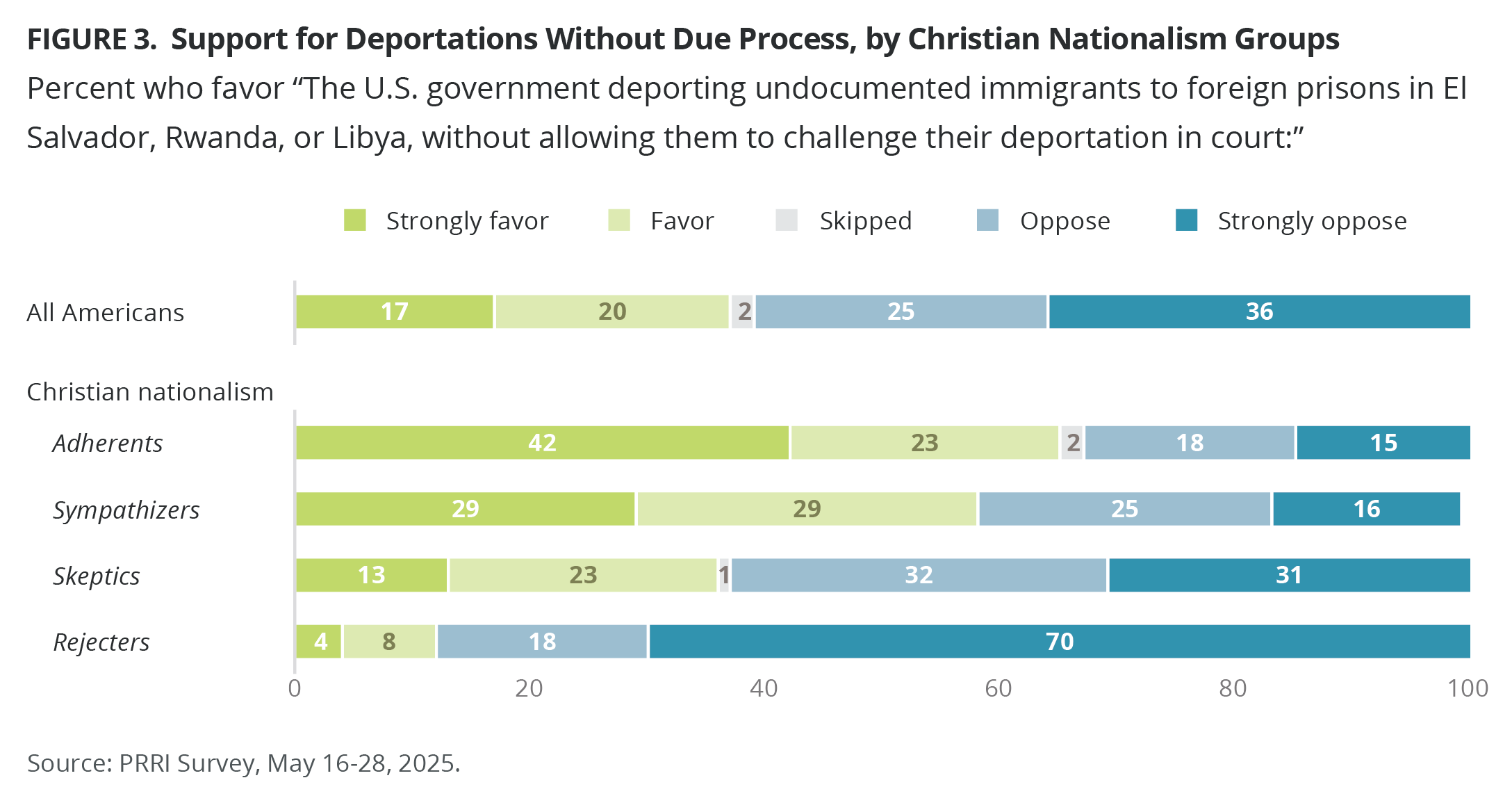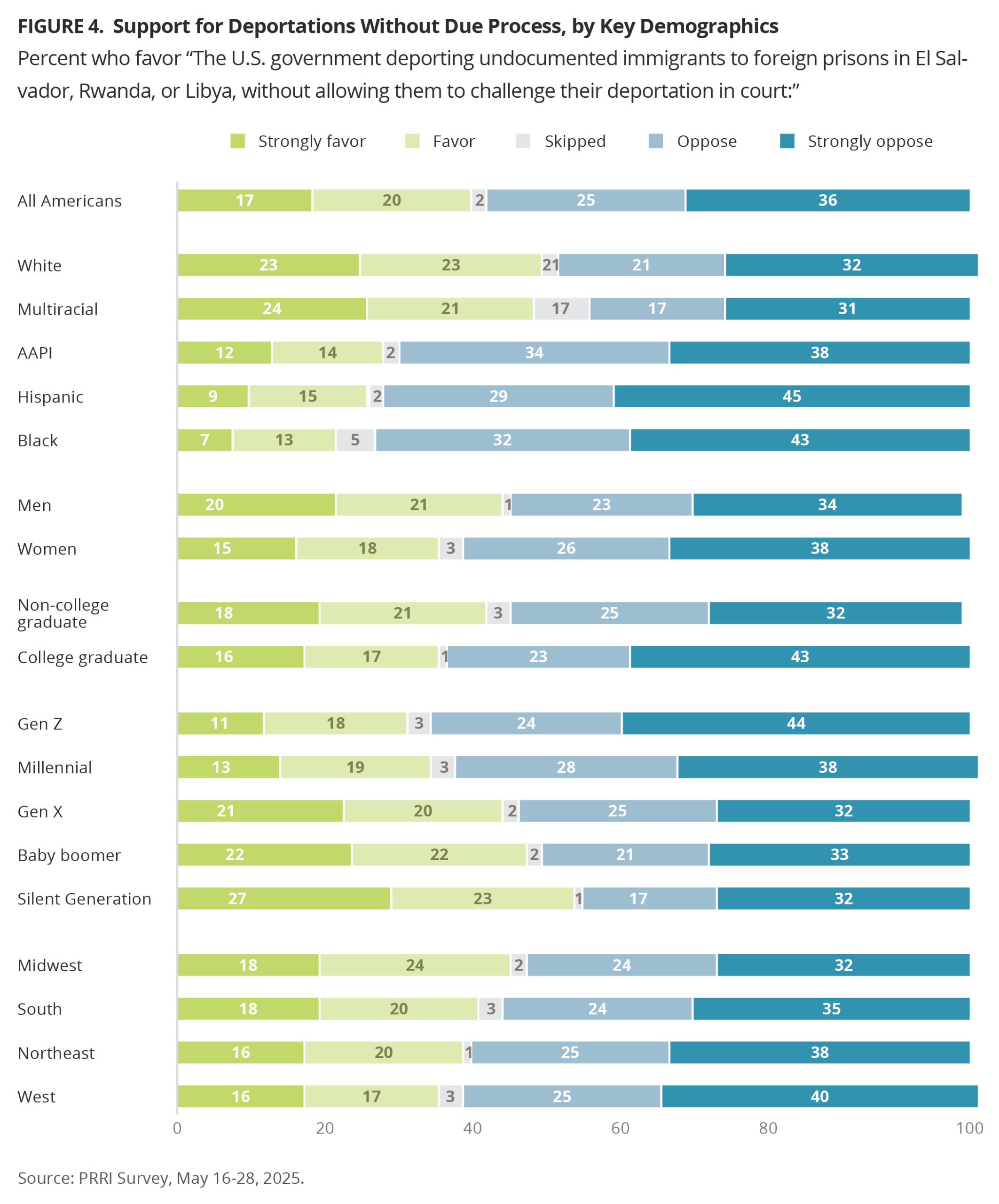Under the Trump administration, immigration enforcement has taken an unprecedented turn as immigrants, including asylum seekers and individuals with legal protections, are now being transferred to foreign prisons. By invoking the Alien Enemies Act of 1798, which allows the president to restrict or regulate citizens of foreign nations during times of war, Venezuelan migrants were deported and imprisoned in El Salvador. In addition, plans have emerged to drastically increase the detention of undocumented immigrants at Guantanamo Bay. Notably, the transfer of many undocumented immigrants has taken place without due process, meaning immigrants are being deported and transferred without access to legal counsel, fair hearings, or the right to appeal their cases. These actions represent a shift away from long-established constitutional protections, recently reaffirmed by the Supreme Court in the case involving the Venezuelan migrants.
New research from a recent PRRI survey of more than 5,000 adults shows that 61% of Americans oppose the U.S. government deporting undocumented immigrants to foreign prisons in El Salvador, Rwanda, or Libya, without allowing them to challenge their deportation in court, including 36% who strongly oppose.[1] At the same time, majorities of some specific groups — Republicans, white evangelical Protestants, and white Catholics, as well as Christian nationalism Adherents and Sympathizers — support these actions.
Republicans (78%) are nearly eight times as likely as Democrats (10%) to favor the deportation of undocumented immigrants to foreign prisons without due process. Roughly one-third of independents (35%) support these immigration actions by the Trump administration.

Turning to religious affiliation, white Christian groups are the most likely to support deportations without due process, with two-thirds of white evangelical Protestants in favor (65%), followed by 54% of white Catholics and 46% of both white mainline/non-evangelical Protestants and Latter-day Saints. In contrast, four in ten Jewish Americans (40%), three in ten Hispanic Protestants (30%), one in four religiously unaffiliated Americans (26%) and non-Christians (25%), and two in ten Hispanic Catholics (22%) and Black Protestants (20%) support deportations without due process.

Majorities of Americans who qualify as Christian nationalism Adherents (65%) and Sympathizers (58%) favor deportations of undocumented immigrants to foreign prisons without due process, compared with over one-third of Skeptics (36%) and just 12% of Rejecters.

White (46%) and multiracial (45%) Americans are about twice as likely as AAPI (26%), Hispanic (24%), and Black (20%) Americans to favor deportations to foreign prisons without due process. Men (41%) are also substantially more likely than women (33%) to favor these deportations, as are Americans without a college degree (39%), compared with one-third of those with a college degree (33%).
Support for deportations without due process increases by generation, with 29% of Gen Zers, 32% of millennials, 41% of Gen Xers, 44% of baby boomers, and 50% of the Silent Generation favoring such deportations.

Those who live in the West (33%) are notably less likely to support deportations without due process than those who live in the Midwest (42%), South (38%), and Northeast (36%). Interestingly, those who live in border states are less likely to support deportations without due process (32%) than those who live elsewhere (40%).
Despite wide public opposition to deporting undocumented immigrants to foreign prisons without due process, PRRI’s new survey reveals deep partisan and religious divides. Support for these immigration actions by the Trump administration is particularly strong among Republicans, white Christian groups, Christian nationalism adherents, and older generations. These results stress a significant departure from the once-broad public consensus on support for long-standing constitutional norms.
[1] This survey was designed and conducted by PRRI. View the survey topline here. The survey was conducted among a representative sample of 5,024 adults (age 18 and up) living in all 50 states in the United States who are part of Ipsos’s KnowledgePanel, and an additional 412 who were recruited by Ipsos using opt-in survey panels to increase the sample sizes in smaller states. Interviews were conducted online between May 16-28, 2025. The margin of error for the national survey is +/- 1.76 percentage points at the 95% level of confidence, including the design effect for the survey of 1.8. In addition to sampling error, surveys may also be subject to error or bias due to question wording, context, and order effects. Additional details about the KnowledgePanel can be found on the Ipsos website: ipsos.com/en-us/solution/knowledgepanel




